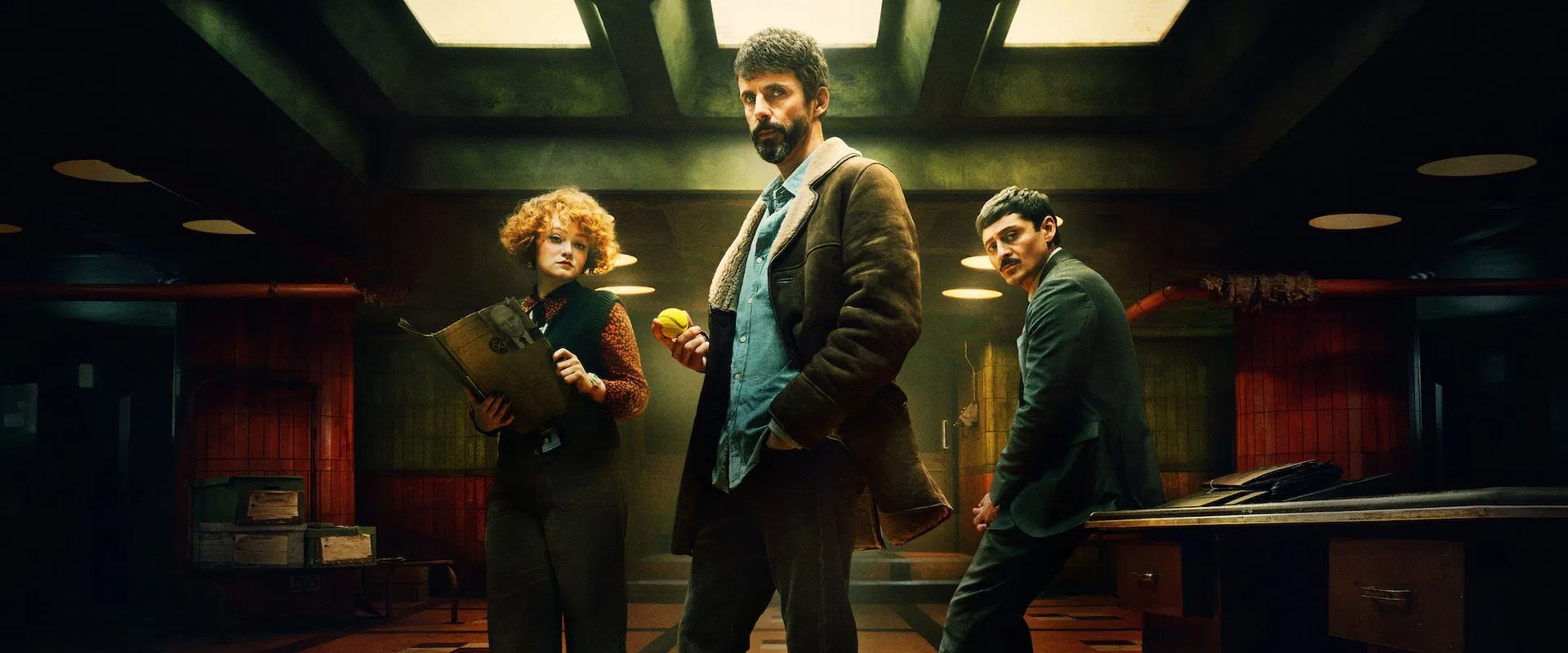Dept. Q, premiering on Netflix in May 2025, is a British crime thriller series that plunges viewers into the dark, complex world of cold cases under the stewardship of Detective Chief Inspector Carl Morck. Created by Scott Frank and Chandni Lakhani, and based on Jussi Adler-Olsen's Danish novels, the show evokes a tense, riveting atmosphere where justice, trauma, and moral ambiguity intertwine. The tone strikes a smart balance between gritty realism and sharp banter, weaving mystery and emotional depth into a seamless narrative that grips audiences from start to finish.
Character and Plot Overview: Flawed Heroes in a Harrowing Quest
At the heart of Dept. Q is Matthew Goode’s compelling portrayal of Carl Morck, a top detective returning from a traumatic shooting that left him physically and emotionally scarred and strained his relationships with colleagues. Morck’s complex persona, marked by dry sarcasm and a dogged commitment to justice, mirrors the intellectual sharpness of Dr. House but grafted onto the tough, often brutal world of policing. Supporting him is Alexej Manvelov’s Akram Salim, a former Syrian policeman quietly shoring up the cold case unit with his understated brilliance. Chloe Pirrie’s Merritt Lingard emerges as a formidable prosecutor with her own layered motivations, while Leah Byrne’s Rose Dickson brings youthful determination tempered by vulnerability to the team. The episodes unfold like peeling an onion, slowly revealing the interconnected backstories and moral dilemmas facing the team as they race against time to solve cases that have long haunted their consciences. From ferry rides retracing doomed journeys to violent altercations in newspaper offices, the narrative pulses with gripping developments that maintain suspense without ever resorting to clichés.
Thematic Elements: Justice, Trauma, and Human Complexity
Dept. Q excels in exploring profound themes of trauma, justice, and systemic flaws in law enforcement. The series does not shy away from depicting the lingering impact of past wounds on both individuals and institutions, while thoughtfully examining how personal demons can both hinder and drive the pursuit of the truth. The characters embody these complexities—Morck’s emotional scars, Akram’s refugee experience, and Rose’s struggle for redemption provide rich narrative veins that the show mines with sensitivity and insight. Thematically, Dept. Q recalls stellar crime dramas that blend character study with procedural intrigue, such as The Wire’s systemic critique and Broadchurch’s emotional resonance, yet it carves its own identity through sharp dialogue and a uniquely Scottish hard-edged sentimentality, all rooted in the atmospheric Edinburgh setting. It challenges viewers to contemplate the moral ambiguity inherent in policing, justice, and the human cost of crime.
Descriptive Language and Production Insights: Atmospheric and Meticulous Craftsmanship
Visually, Dept. Q is a masterclass in mood and atmosphere, immersing viewers in rain-soaked Edinburgh streets, claustrophobic basement offices, and windswept island landscapes that echo the isolations and turbulence of its characters. The show’s production quality is outstanding, with taut direction and precise editing that keep the narrative flowing briskly without sacrificing nuance. Costume design and setting details paint a realistic and textured Scottish milieu, while the sound design subtly enhances suspense and emotional beats. The witty, smartly pitched dialogue crackles with intelligence and dark humor, creating scenes that are as engaging as they are emotionally charged. Behind-the-scenes, Scott Frank’s screenplay deftly balances intricate plotting with character-driven moments, ensuring the show is highly bingeable, compelling viewers to devour episodes rapidly yet savor the depth.
Critical Analysis: A Triumph in British Television Drama
Dept. Q stands out as a triumph in contemporary crime drama, anchored by Matthew Goode’s magnetic and transformative central performance. The ensemble cast, particularly Alexej Manvelov’s Akram, brings nuanced and memorable portrayals that enrich the story beyond the typical procedural fare. The writing is sharp and witty, weaving clever clues and red herrings into a tightly knit plot that rewards attentive viewing. While some characters show rough edges bordering on implausibility, this only adds to the gritty texture and sense of realism. The show’s pacing is deliberate, inviting viewers to slowly unpack mysteries rather than rush toward easy resolutions. The only potential drawback is that viewers craving high-octane action might find the gradual unfolding a bit measured, but the psychological and emotional payoffs are substantial. The deft cultural authenticity in capturing Scottish sensibilities further elevates the viewing experience. Overall, Dept. Q refreshes genre conventions with intelligence, emotional weight, and sharp storytelling.
Conclusion: A Must-Watch Exploration of Justice and Redemption
Dept. Q impresses as a dark, gripping, and richly layered crime thriller that delivers much more than a puzzle to solve. It offers a compelling exploration of justice, trauma, and moral complexity through unforgettable characters and an evocative setting. With standout performances, especially by Matthew Goode and Alexej Manvelov, engaging storytelling by Scott Frank, and a production team focused on detail, it sets a new standard for quality in crime television. This show not only captivates with its twists and sharp dialogue but also challenges viewers to reflect on the human cost of law enforcement and the quest for truth. For those who appreciate smart, character-driven mysteries infused with wit and heart, Dept. Q is an absolute must-watch — a series deserving of renewal and continued anticipation.


